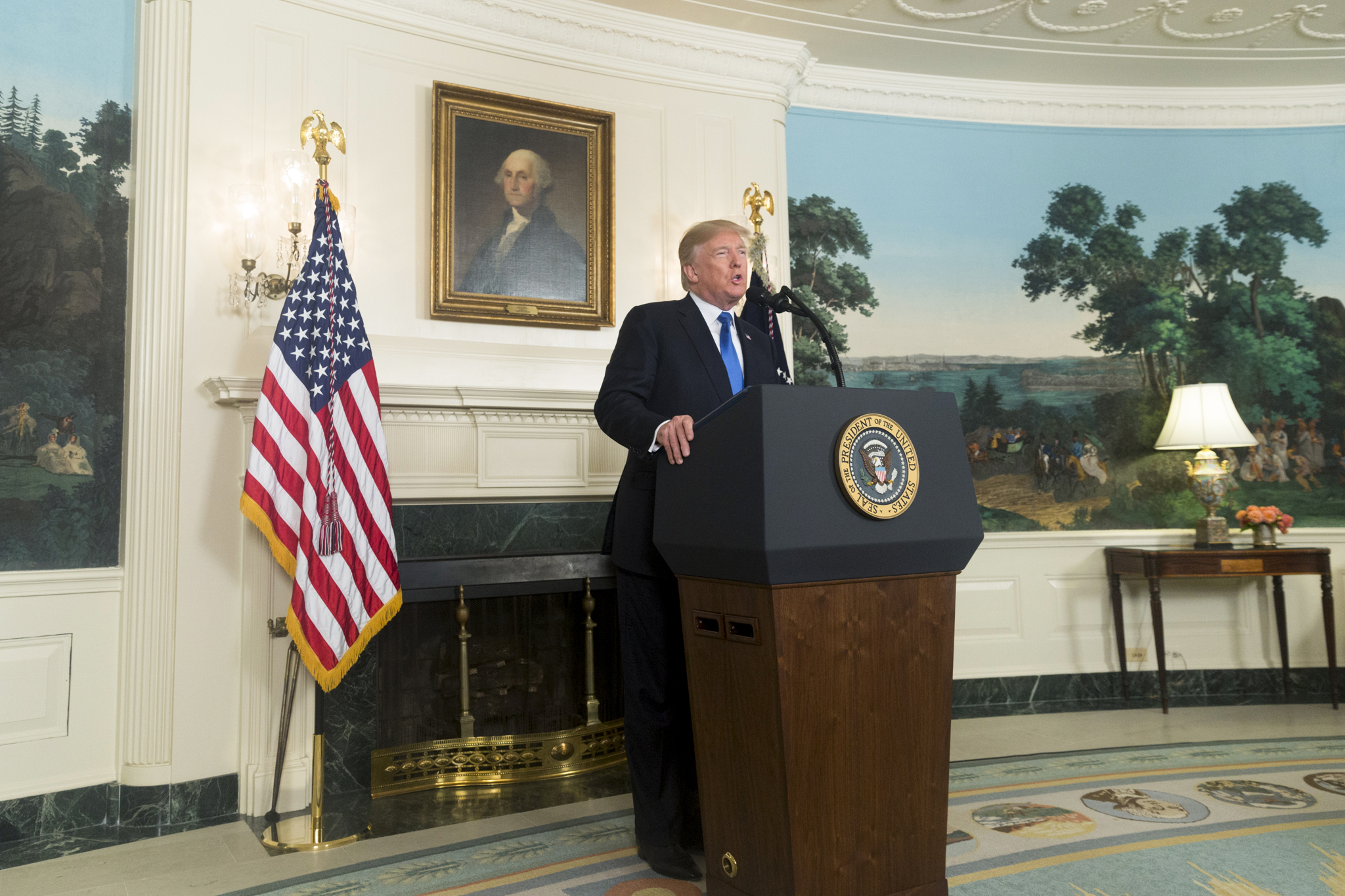By Navin Bapat and guest contributor Rebecca Best
Earlier this month, the Taliban proposed a ceasefire to facilitate negotiations with the United States. What should we expect from those negotiations?
Last September, a deal between the Taliban and the Trump administration seemed imminent. In a case of poor optics, Trump planned to host Taliban leaders at Camp David to finalize the agreement, close to the anniversary of the 9/11 terrorist attacks. But talks ended abruptly when the president called off the meeting in response to domestic political backlash and increasing Taliban violence in Afghanistan. Negotiations to end the now 18 year-long war resumed in November.
Civil war scholars generally assume that militant groups like the Taliban have greater difficulty establishing credibility and fulfilling the terms of negotiated settlements than do states. While a faction of the Taliban may profess interest in negotiation, another faction may prefer to continue the conflict and may escalate violence to sabotage the peace process. Or the Taliban may agree to a cease-fire, but use the time to rebuild and equip their forces for a full offensive against Kabul. It can also be difficult to verify if militants are fulfilling the terms of an agreement. Because it is easier for the Taliban to monitor US military actions than it is for the US to monitor the Taliban, the Taliban may have an incentive to forge a peace it will later abrogate.
But it isn’t only the credibility of the Taliban that is in question, in this case—so is the credibility of the US. During the 2016 campaign, President Trump said he preferred to be ‘unpredictable’ in order to improve his bargaining power against adversaries. He has certainly been unpredictable in Afghanistan—he escalated the conflict by dropping significant weapons in the US arsenal and simultaneously proposed to rapidly draw down US forces.
President Trump’s inconsistent behavior may reflect his domestic political calculus. On January 3, Trump authorized an operation that killed Qasem Soleimani, the leader of the Iranian Quds force, just as his impeachment hearings were beginning. This timing led some to charge that Trump engaged in military action to distract from his domestic woes. Similarly, in April 2017, as focus increased on the Trump campaign’s alleged collusion with Russia, the president authorized airstrikes against Syria for its use of chemical weapons, even as he repeated that Syria was not an issue of interest for the US.
Any deal struck with President Trump may be vulnerable to the political winds within the US. If the Taliban were to comply with a deal, they too would be vulnerable to Trump’s unpredictability. And, if the Taliban don’t believe Trump will fulfill his agreements, there is no reason for them to comply either.
The president’s base would likely reward him for striking a deal to pull American troops out of Afghanistan, fulfilling a campaign promise. Trump may see this as a much-needed win in an election year. But Trump’s base has proven loyal, and a deal with the Taliban could elicit backlash from GOP elites—including donors and senators. When the president’s plan to withdraw all US forces from Afghanistan came to light in September, Senator Lindsey Graham, a strong ally of the president, rejected it, and several prominent Republican representatives criticized the proposal to invite Taliban leaders to Camp David on the anniversary of 9/11. While the risk of attracting primary challengers has largely kept GOP Senators in line (with the exception of Jeff Flake), the president finds himself in a uniquely vulnerable position vis-a-vis the Senate as that body considers whether to remove the president from office.
Even if the president expects to comply with a deal—and he may, if he doesn’t anticipate a backlash—his domestic vulnerability will make compliance that much harder if he faces domestic opposition. And domestic opposition is likely. Negotiating with the Taliban is almost always controversial, and likely to be accompanied by violence that could shift the balance of power in Afghanistan. Furthermore, his reputation for behaving erratically, and his domestic constraints, are no secret from the Taliban, and they are unlikely to take any deal seriously. Instead, the group will likely prepare for the possibility that Trump will change his mind or, if he doesn’t, to exploit the US should it begin following through with its commitments. All of this, coupled with the low probability that any negotiations would include the elected Afghan government and other civil society representatives, suggests that a deal in Afghanistan will not produce a credible peace.
The expectation that terrorist organizations have the larger commitment problem downplays domestic political divisions that may create or exacerbate commitment problems for states and assumes that state leaders value consistency. By cultivating a reputation for unpredictability and frequently misrepresenting the truth, the president has unwittingly solidified his reputation for unreliability. That, in turn, encourages uncooperative behavior on the part of the Taliban—something that can be said for other US adversaries.
Navin Bapat, a permanent contributor, is a Professor in Political Science and the Chair of the Curriculum of Peace, War, and Defense at the University of North Carolina–Chapel Hill. Rebecca Best, a guest contributor, is an Assistant Professor in the Political Science Department at the University of Missouri–Kansas City.







